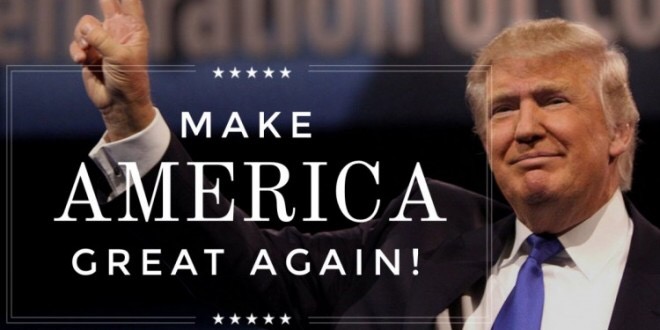
Earlier today, May 26, Donald Trump reached the number of delegates needed to clinch the Republican nomination for president, completing an unlikely rise that has upended the political landscape and sets the stage for a bitter fall campaign.
Trump was put over the top in the Associated Press delegate count by a small number of the party’s unbound delegates who told the AP they would support him at the convention. Among them is Oklahoma GOP chairwoman Pam Pollard.
“I think he has touched a part of our electorate that doesn’t like where our country is,” Pollard said. “I have no problem supporting Mr. Trump.”
It takes 1,237 delegates to win the Republican nomination for president. Trump has reached 1,238. With 303 delegates at stake in five state primaries on June 7, Trump will easily pad his total, avoiding a contested convention in Cleveland in July.
Trump, a political neophyte who for years delivered caustic commentary on the state of the nation from the sidelines but had never run for office, fought off 16 other Republican contenders in an often ugly primary race.
Many on the right have been slow to warm to Trump, wary of his conservative bona fides. Others worry about Trump’s crass personality and the lewd comments he’s made about women.
Trump’s path to the Republican presidential nomination began with an escalator ride.
Trump and his wife, Melania, descended an escalator into the basement lobby of the Trump Tower on June 16, 2015, for an announcement many observers said would never come: The celebrity real estate developer, who had flirted with running for office in the past, would announce that he was launching his campaign for the GOP presidential nomination.
That speech set the tone for the candidate’s ability to dominate the headlines with provocative statements, insults and hyperbole. He called Mexicans “rapists,” promised to build a wall between the U.S. and Mexico and ban Muslims from the U.S. for an indeterminate time.
He put down women based on their looks. And he unleashed an uncanny marketing ability in which he deduced his critics’ weak points and distilled those to nicknames that stuck. “Little Marco” Rubio, “Weak” Jeb Bush and “Lyin’ Ted” Cruz, among others, all were forced into primarily reacting to Trump. They fell one-by-one — leaving Trump sole survivor of a riotous Republican primary.
His rallies became must-see events and magnets for free publicity. Onstage, he dispensed populism that drew thousands of supporters, many wearing his trademark “Make America Great Again” hat and chanting, “Build the wall!”
The events drew protests too– with demonstrators sometimes being forcibly ejected from the proceedings.
One rally in Chicago was cancelled after thousands of demonstrators surrounded the venue and the Secret Service could no longer vouch for the candidate’s safety.
All the while, Republican leaders declared themselves appalled by Trump’s rise. Conservatives called the onetime Democrat a fraud. But they failed, ultimately, to block him. Republican leaders slowly, warily, began meeting with Trump and his staff. And he began winning endorsements from a few members of Congress.
As with other aspects of his campaign, Trump upended the traditional role of money in the race.
Trump, 69, the son of a New York City real estate magnate, had risen to fame in the 1980s and 1990s, overseeing major real estate deals, watching his financial fortunes rise, then fall, hosting “The Apprentice” TV show and authoring more than a dozen books.
Source – AP





Yikes ! What next – Middle East and Mexico to start deploying Russian missile shield .:..
God bless America !!!